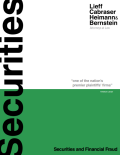DexCom, Inc. (DXCM) Securities Class Action Litigation
Introduction
Securities class action litigation has been filed on behalf of investors who purchased or otherwise acquired the securities of DexCom, Inc. (“DexCom”) (NASDAQ: DXCM) between January 8, 2024 and September 17, 2025, inclusive (the “Class Period”).
If you purchased or acquired DexCom securities during the Class Period, you may move the Court for appointment as lead plaintiff by no later than December 26, 2025.
A lead plaintiff is a representative party who acts on behalf of other class members in directing the litigation. Your share of any recovery in the actions will not be affected by your decision of whether to seek appointment as lead plaintiff. You may retain Lieff Cabraser, or other attorneys, as your counsel in the action.
DexCom investors who wish to learn more about the litigation and how to seek appointment as lead plaintiff should complete the form below, text or email investorinfo@lchb.com, or call Lieff Cabraser partner Sharon M. Lee at 1-800-541-7358.
Background on the DexCom Securities Class Litigation
DexCom, incorporated in Delaware and headquartered in San Diego, California, designs, manufactures, and markets CGM systems to help individuals with types 1 and 2 diabetes monitor and control their blood sugar levels. The Company’s two key CGM products are the G6 and the G7, which DexCom launched in 2018 and in 2023, respectively.
The action alleges that, throughout the Class Period, Defendants made false and/or misleading statements and/or failed to disclose that: (a) DexCom made material design changes to the G6 and G7 without FDA approval that adulterated a component used in the resistance layer of the sensors and which compromised their accuracy and the ability to transmit blood glucose data to patient receivers and smart devices; (b) as a result, the adulterated G6 and G7 were significantly less reliable, functional, and accurate than prior FDA approved models, and subjected unsuspecting patients to significant risk of injury or death; and (c) Defendants continued to downplay the severity of the health risks that the adulterated devices created, claiming repeatedly that its sensors were the “most accurate … [and] highest quality” available.
On July 25, 2024, after market close, DexCom announced disappointing Q2 2024 fiscal results that missed analysts’ revenue expectations and it also lowered its full year revenue guidance from $4.2 billion to $4.35 billion to $4.00 billion to $4.05 billion. While the Company attributed its underperformance to varying sales execution problems, a former DexCom software engineer who worked on the G7 “quality team” during the Class Period reportedly revealed that the Company’s Q2 2024 disappointing quarterly performance was actually due to rampant signal loss and data reception issues within the G7, which led to many complaints and a refusal from consumers to upgrade to the G7 from the G6. On this news, the price of DexCom common stock declined $43.85 per share, or 40.66%, from a closing price of $107.85 per share on July 25, 2024, to close at $64.00 per share on July 26, 2024, on extremely heavy trading volume.
On March 7, 2025, after market close, DexCom revealed that it had received a Warning Letter from the FDA on March 4, 2025 “following inspections of DexCom’s facilities in San Diego, California and Mesa, Arizona.” According to DexCom, the letter “observed non-conformities in manufacturing processes and quality management system” but assured that it would “not restrict the Company’s ability to produce, market, manufacture or distribute products, require recall of any products, nor restrict the Company’s ability to seek FDA 510(k) clearance of new products.” On this news, the price of DexCom common stock declined another $7.12 per share, or 9.15%, from a closing price of $77.84 per share on March 7, 2025, to close at $70.72 per share on March 10, 2025, on heavy trading volume.
On March 25, 2025, the FDA published the Warning Letter that revealed that DexCom had “adulterated” its G6 and G7 products because it modified its G6 and G7 sensors by replacing a “component used in the resistance layer” without prior regulatory approval. The letter also warned that this change subjected the G6 and G7 devices to “larger inaccuracies” that could pose major health risks for consumers “who rely on the sensors to dose insulin or make other diabetes treatment decisions.” On this news, the price of DexCom common stock declined $3.19 per share, or 4.24%, over the next two trading days, from a closing price of $75.32 per share on March 24, 2025, to close at $72.13 per share on March 26, 2025.
On September 8, 2025, equity research firm Oppenheimer downgraded its rating of DexCom to “perform” from “outperform” and removed its $102.00 price target on DexCom’s stock, citing patient and consumer concern with the G7’s inaccuracy, failed sensor insertions, abrupt stoppages, and other performance issues. On this news, the price of DexCom common stock fell $2.51 per share, or 3.12%, from a closing price of $80.51 per share on September 5, 2025, to close at $78.00 per share on September 8, 2025, on elevated trading volume.
On September 18, 2025, Hunterbrook, a publisher of investigative and global reporting, reported that the adulterated G7 devices created issues and health risks far more severe and numerous than previously disclosed. Hunterbrook cited FDA documents obtained through a Freedom of Information Act request, as well as accounts from doctors, healthcare experts, former DexCom employees, and G7 users and their families. The report found that “at least 60 people claim to have been hospitalized and multiple others allege death connected to G7 issues.” On this news, the price of DexCom common stock fell $8.99 per share, or 11.76% over the next two trading days, from a closing price of $76.44 per share on September 17, 2025, to close at $67.45 per share on September 19, 2025, on extremely heavy trading volume.
Shareholder Contact Form












